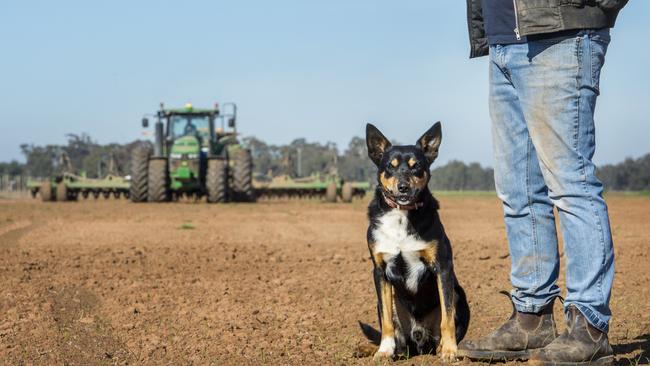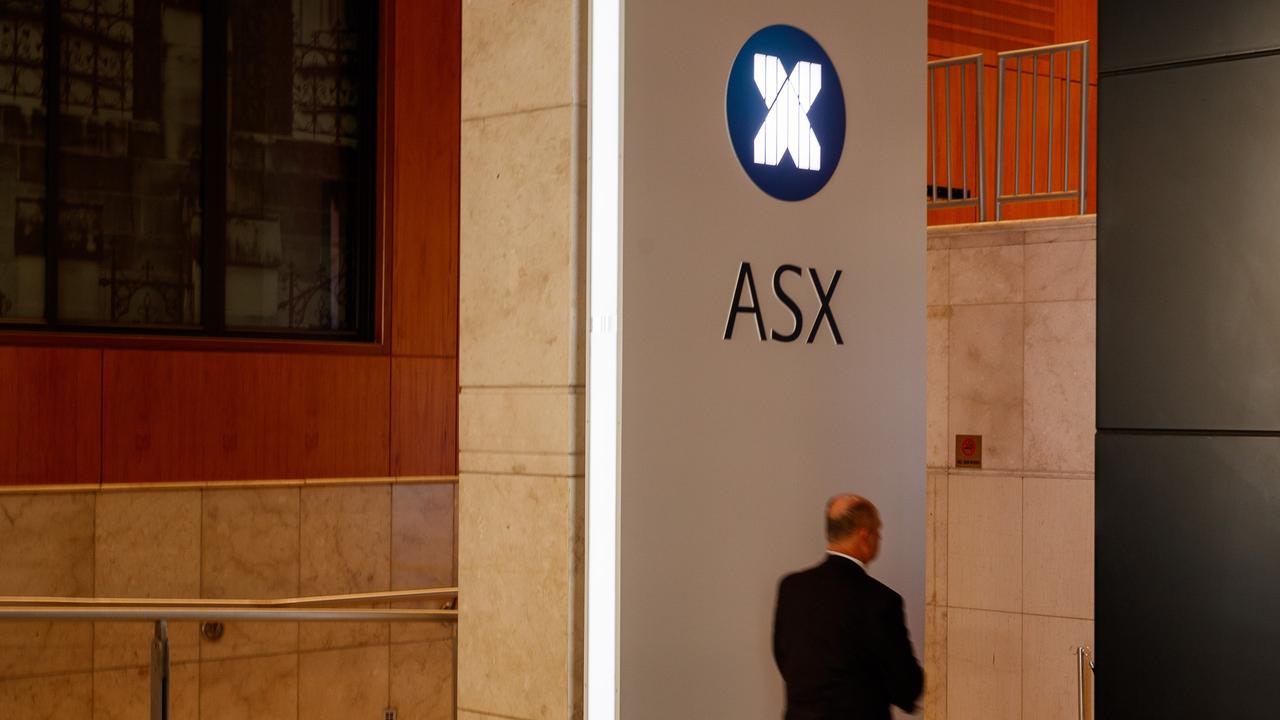China boycott will ‘hurt’ Australian businesses
China is omnipresent across Australia’s supply chains, which is why we can’t ban their products.

Calls to boycott Chinese products over escalating trade tensions between Beijing and Canberra may end up hurting Australian businesses more than helping them, economists and China experts warn.
While China’s communist regime has banned or imposed punitive tariffs on a range of Australian farm commodities, calls for Australia to respond in kind are short-sighted given the “asymmetrical” relationship between the two countries.
China accounts for 27 per cent of total imports into Australia — more than double the US, the next biggest source of imports — while Australia accounts for 1.9 per cent of China’s worldwide sales.
Even buying a product with the triangular green and gold Australian-made logo on it doesn’t completely snub Chinese-made goods. Take most tomato sauces, for example. They’re made mostly from Australian ingredients, but the acidity regulator it contains most likely comes from China.
Confucius said “do not use a cannon to kill a mosquito”. Confused? Try eating a meat pie without tomato sauce.
“The main point really is the relationship (between Australia and China) is utterly asymmetric in the sense that China is by far our biggest trading partner and whatever China does is of major impact — and it’s not only in the mining sector. Chinese integration is in Australian supply chains and value chains,” Professor Hans Hendrischke, of Sydney University, said.
“It covers every industry from agriculture to textiles … in all major industries the Chinese are part of our supply chains. So a boycott would hurt our industries as well.”
About $20bn worth of Australian exports have been targeted in Beijing’s trade dispute with Canberra after Scott Morrison spearheaded a push for an inquiry into the origins of COVID-19, which was first detected in Wuhan in late 2019.
Last April, China’s ambassador in Canberra, Cheng Jingye, suggested Mr Morrison’s push for an inquiry into the origins of the coronavirus could trigger a boycott of Australian products in China. “Maybe the ordinary people will say ‘Why should we drink Australian wine? Eat Australian beef?’” he said.
The subsequent bans or punitive tariffs Beijing has imposed on a range of Australian farm commodities has triggered calls for Australia to retaliate in kind.
One Nation senator Pauline Hanson — who said in her maiden speech in 1996 that Australia was in “danger of being swamped by Asians” — said China had launched “economic attacks against Australia”.
“We all have our part to play in this. Think about it when you buy that furniture, that toy, that food, whatever you buy, have a look where it comes from, and if it’s China, let it sit on the shelf,” Senator Hanson said in a Facebook video last month.
But Tim Harcourt, JW Nevile Fellow in Economics at University of NSW and former Austrade chief economist, said Beijing’s ban on Australian products had hurt Chinese businesses and consumers. He said if Australians boycotted Chinese products it would have a similar effect, quoting legendary Cambridge economist Joan Robinson who said trade bans were like “putting rocks in your own harbour”.
“The Chinese are hurting themselves by banning Aussie products. It’s only hurt China really,” Mr Harcourt told The Weekend Australian.
“If we retaliated, the old phrase in economics is boycotting goods is like ‘putting rocks in your own harbour’, ultimately you hurt yourself.
“Eighty per cent of exporters are importers. There are a lot of Australian businesses exporting to China but a lot of the components are imported, so you would ultimately undermine Australian exporters if you did a boycott of Chinese imports. You’ve got to ask yourself why you would want to hurt them when they are already under pressure.”
While the Australian government has not gone as far as a boycott, it has vetoed a range of high-profile proposed Chinese deals. This week, Treasurer Josh Frydenberg blocked a $300m Chinese takeover of construction firm Probuild, citing national interest grounds. Issues around who controls the quality of and access to Australians’ data has become an area of increasing focus for the Foreign Investment Review Board, and the government has been imposing more conditions on foreign companies regardless of their provenance to control these risks.
In the case of building contractors, FIRB guidelines note that foreign intelligence services could gain access to sensitive blueprints or install surveillance equipment in sensitive buildings, and Probuild was involved in building the head office of Australia’s biggest company, CSL, in Melbourne.
Yet Probuild rival Multiplex has been foreign-owned by Canadian private equity group Brookfield Asset Management since 2007. The difference: Canada is a Western democracy, China is a communist authoritarian regime.
The Probuild decision followed the government opposing Chinese company’s Mengniu’s proposed $600m takeover of Lion, which at the time was controlled by Japanese company Kirin, last August. ASX-listed company Bega Cheese eventually acquired Lion’s assets for $534m, a considerable discount.
“In Australia it seems there are two extremes of the debate — there’s a national security, geopolitics, spooks in Canberra sort of saying, ‘we’ve got to switch off doing business in China and switch to India’, which is not feasible at all, they obviously don’t have a grasp of the economics,” Mr Harcourt said.
“And then there is this real pro-China lobby — you saw that with Twiggy Forrest last year — where they say ‘we have just got to do whatever they (China) say because we have got to keep our relationship intact’, which I don’t think is right either. There has to be a nuanced approach.
“You have to trade with people and you are going to disagree on some things. I can understand the importance of the trade relationship underpinning the economy but things like donations to political parties, deciding what universities should say in their courses, this sort of stuff — nobody signed up to that and we do have very different systems. I don’t think there is anything wrong with saying we want to be a very good trading partner but our political institutions and our education institutions we have sovereignty over.”
Australia China Business Council president David Olsson said in November Australia cannot bend the knee in response to Beijing’s pressure but resolution requires a “level of dialogue that remains elusive”.
One way forward is seeking a multilateral response to combat the heightened trade tensions.
“We have pretty good ties in the region with Japan, South Korea, Singapore, ASEAN (Association of Southeast Asian Nations), India, so we are not by ourselves in this and you really need a regional response to these types of issues, not bilateral,” Mr Harcourt said.
And the Australian business community, particularly the agricultural sector is sweating on a resolution. Agriculture-focused investment banker David Williams of Kidder Williams said every time China is locked out of an Australian investment deal, it lowers the purchase price by 10 per cent or more.
“Not having the Chinese there as investors or as buyers of businesses is taking a minimum of 10 per cent out of the price of what we can raise in Australia,” Mr Williams said.
“Whether you’re selling businesses or raising money we need that Chinese capital to expand food production, agricultural land and plantings. That’s got to be good for us and then they are also going to take some of the product. It’s a win/win for Australia and we need to have them back here. It’s not like the Chinese are crowding out Australian investors, our super funds don’t want to invest in agriculture.
“The government has got to find a way of solving the defence and national security problems while still finding a way to trade with them in the same way as America and Germany and everyone else in the world seems to be able to.”
Trade Minister Dan Tehan, a former diplomat who was promoted last month to help smooth tensions with Australia’s biggest trade partner, said he would seek to “continue to engage constructively with China to resolve outstanding trade issues”.
He said Australia’s ongoing prosperity was dependent on an “open international economy, global rules-based trade and well-functioning global supply chains, particularly as the Australian and global economy recovers from the impact of COVID-19”.
“Australia and China have both benefited from our Comprehensive Strategic Partnership and from open and rules-based trade,” Mr Tehan told The Weekend Australian.
“The strong commercial ties between our two countries have provided the foundation of the broader relationship and continuing to grow our commercial relationship is in both countries’ interest.
“I will engage, listen and work tirelessly to advance Australia’s trade interests with all of our trading partners.”
Mr Tehan also highlighted the strength of free-trade agreements with Australia’s other key partners and emerging markets.
“Australia is a trading nation. Our prosperity has been built on trade and our future relies on it. Trade creates jobs, drives innovation and underpins our economic growth. Trade is a mutually beneficial relationship between nations that enhances friendships, understanding, respect and co-operation.
“The Morrison government has focused on negotiating free-trade agreements in the national interest. The proportion of Australian trade covered by free-trade agreements is around 70 per cent, up from around 27 per cent in 2013.”






